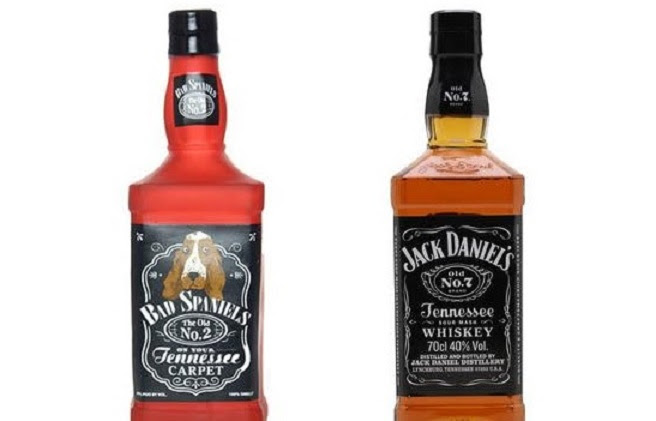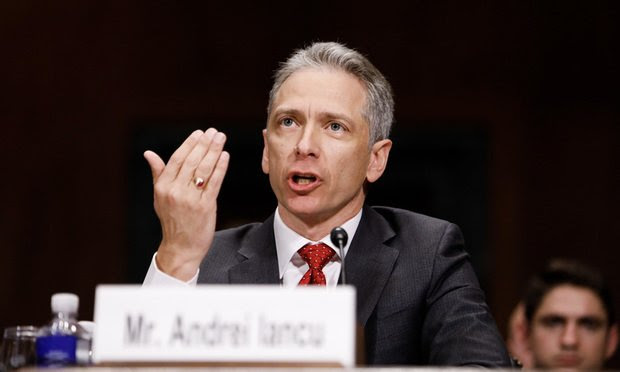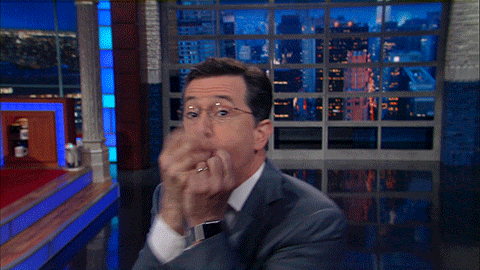Skilled in the Art: Jack Daniels Trademark Judgment Goes to the Dogs + PTO Extends Deadlines + Federal Circuit Is Already Souring on Telephonic Arguments
The U.S. Court of Appeals for the Ninth Circuit drops an "Old No. 2" on Jack Daniels Properties' Tennessee carpet.
March 31, 2020 at 09:36 PM
9 minute read
Welcome to another remotely written edition of Skilled in the Art. I'm Law.com IP reporter Scott Graham. Here's what's crossing my desk today:
• Ninth Circuit drops an "Old No. 2" on Jack Daniels Properties' Tennessee carpet.
• Some Federal Circuit judges are already souring on telephonic oral arguments.
• Fish & Richardson to offer pointers on remote advocacy.
• Google says hardly anyone is downloading the allegedly pirated music of Ray Henderson and Harry Warren.
As always, you can email me your thoughts and follow me on Twitter.

Jack Daniels Has a Little Mess to Clean Up
Jack Daniels' bark has turned out worse than its bite in a trademark case over a whimsical dog toy.
The spirits maker, whose bottle promotes "Old No. 7 Brand Tennessee Sour Mash Whiskey," had won a permanent injunction following a four-day bench trial in 2017. U.S. District Judge Stephen McNamee blocked VIP Products from making or selling any more of its "Bad Spaniels Silly Squeaker" toys, which are emblazoned with "the Old No. 2, on your Tennessee Carpet."
McNamee ruled that VIP Products had infringed the well-known Jack Daniels trademark, whose chief enforcer recently was hired to run trademarks at the USPTO. VIP also was found to have diluted and tarnished Jack Daniels' trade dress.
But the Ninth Circuit concluded Tuesday that Jack Daniels Properties is taking itself a little too seriously.
Judge Andrew Hurwitz agreed with McNamee that the Jack Daniels trade dress and bottle design are distinctive and aesthetically non-functional. He also agreed that McNamee properly rejected VIP's defense of nominative fair use, because of the significant differences between the Jack Daniels bottles and the squeaky toys (e.g., the image of a spaniel on the toy).
But VIP has a First Amendment fair use defense, Hurwitz concluded. Because artistic expression is at issue, the traditional likelihood-of-confusion test isn't the end of the story for determining infringement.
"The Bad Spaniels dog toy, although surely not the equivalent of the Mona Lisa, is an expressive work," Hurwitz wrote.
Plus, there's a case right on point from the Fourth Circuit, in which doggy toys shaped like handbags and called "Chewy Vuiton" were found not to infringe the famous Louis Vuitton trademark. "No different conclusion is possible here," Hurwitz wrote.
Judges Wallace Tashima and Eric Miller concurred.
The case isn't completely over. The Ninth Circuit entered judgment for VIP on the dilution claim but remanded the infringement claim. Jack Daniels can still win if it can prove that VIP "explicitly misleads consumers as to the source or content of the work" under the Rogers v. Grimaldi test, though if I were Jack Daniels, I'd call off the dogs.
Dickinson Wright partner David Bray had the winning argument for VIP. D. Peter Harvey of Harvey & Co. argued the case for Jack Daniels Properties.
 PTO Director Andrei Iancu
PTO Director Andrei Iancu
PTO Pushes Deadlines 30 Days for COVID-19
It didn't take long for PTO Director Andrei Iancu to use his authority under the CARES Act to extend PTO deadlines on account of COVID-19.
The PTO announced Tuesday that many patent prosecution and a few PTAB deadlines will be extended 30 days for due dates between March 27 and April 30. The same will be true for trademark-related deadlines. Delayed filings or payments will require a statement that they were due to the COVID-19 outbreak.
"Inventors and entrepreneurs are the lifeblood of our economy, and we recognize that many of them are having difficulty as a result of the effects of COVID-19," Iancu said in a statement posted on the agency's website. "Ultimately, our goal is to ensure not only that inventors and entrepreneurs can weather the storm, but that they can hit the ground running once it passes."

The Incredible Disappearing Argument Calendar
The Federal Circuit keeps scheduling fewer and fewer hearings next week.
Two weeks and a lifetime ago, the court announced that it would be submitting on the briefs about half of the 67 arguments it had docketed for April. Most of the rest would be handled via teleconference. At the time the court seemed on the leading edge of appellate-judging-by-social-distance.
Now, it appears that at least some of the judges don't want to deal with teleconferences either.
On March 27, the day after the court circulated "telephonic orientation" letters to counsel, the court abruptly canceled at least an additional seven arguments. Along with a handful of additional cancellations earlier in the week that left only 18 cases to be argued.
The aversion to teleconferencing varies from panel to panel. Some next week will hear as many as three and even four arguments by telephone. But at least one panel each day will hear no arguments whatsoever. (The Federal Circuit doesn't reveal the identity of panel judges until the day of oral argument, so we may not know which judges canceled the telephonic hearings until rulings are issued.)
Fish & Richardson partner John Dragseth reminds me that it's important that we all cut everyone some slack while navigating this uncharted territory.
"Extra: Patent attorneys have gotten spoiled by having oral argument available in almost all cases," Dragseth says. "Sure, this is an extreme departure from that, but I think it will moderate [over] the next couple months."
Dragseth is right that CAFC is way ahead of its sister circuits when it comes to argument generally. On average, the other 12 federal appellate courts hold hearings in only 20% of cases decided on the merit—even when there's no pandemic.
But I've still got to say, the Ninth Circuit has been impressively quick in adapting its video-streamed oral arguments to these times.
 Fish & Richardson's David Conrad and Susan Morrison
Fish & Richardson's David Conrad and Susan Morrison
Can You Object to Me Now?
Fish & Richardson is hosting a free webinar on Wednesday entitled "Remote Advocacy in the Age of Social Distancing."
Fish partner David Conrad says that while some litigators are used to appearing by telephone, such hearings are now being used "for bigger, more important and even dispositive hearings." Inevitably, new issues are going to pop up related to non-verbal cues that lawyers and judges normally provide during hearings, he says.
"You may know when you need to continue talking, because you can see the look on the judge's faces," Conrad says. "You may be able to see the judge and say, 'I need to sit down and stop talking.'"
When arguing by telephone, "You don't have that anymore. But there could be some of that connection that comes across from the judge through his or her voice, his or her questions, [that] an experienced lawyer before that judge might be able to pick up on."
Some hearings might be postponed, but pretty soon IP lawyers will have to participate in virtual hearings on TROs and preliminary injunctions, sometimes with live witnesses, Conrad points out.
Conrad and Fish partners Susan Morrison, Jackob Ben-Ezra and Steven Katz plan to discuss how to choose the right technology and best practices for remote hearings, among other things.

Google: Nobody Listens to Your 'Pirated' Music
I've written a couple of times about the copyright suit against Google and Amazon over allegedly pirated music. Today, Google's Mayer Brown attorneys answered the complaints, which accuse the tech giants of turning a blind eye as music aggregators Valleyarm Digital Ltd. and Limitless International Recordings furnish pirated copies of the music of Ray Henderson and Harry Warren on their websites.
Henderson and Warren composed numerous American standards such as "Bye Bye Blackbird" and "I Only Have Eyes for You," respectively.
"Google denies that it has 'pirated' any recordings of musical works and denies that it has participated in the offering of downloads of pirated recordings," states Google's answer, signed by Mayer Brown partner John Mancini.
Google says it's common practice for companies such as itself to rely on third-party aggregators to obtain mechanical licenses for music made available on services like Google Play. The company says plaintiffs Ray Henderson Music Co. and Four Jays Music "likely" obtained payments for the mechanical licenses and didn't return them.
And, in the cruelest cut of all, Google asserts a de minimis use defense, because it "understands that at least some of the sound recordings at issue were never downloaded or were downloaded a de minimis number of times."
Amazon is slated to answer in the next few days. Perkins Coie partners Holly Simpkins and Eric Weiss and associate David Martin and King & Spalding senior associate David Mattern entered appearances for Amazon over the last week.
The plaintiffs, meanwhile, have now set their sights on Apple as well, naming the iTunes operator in a new complaint Monday and adding Harold Arlen's heirs to their roster. Arlen's works include "Over the Rainbow" and "Stormy Weather."
The plaintiffs are represented by the Law Offices of Allen Hyman; Schwartz, Ponterio & Levenson; Giskan Solotaroff & Anderson and the Mann Law Group.
That's all from Skilled in the Art today. I'll see you all again on Friday. Stay safe everybody!
This content has been archived. It is available through our partners, LexisNexis® and Bloomberg Law.
To view this content, please continue to their sites.
Not a Lexis Subscriber?
Subscribe Now
Not a Bloomberg Law Subscriber?
Subscribe Now
NOT FOR REPRINT
© 2025 ALM Global, LLC, All Rights Reserved. Request academic re-use from www.copyright.com. All other uses, submit a request to [email protected]. For more information visit Asset & Logo Licensing.
You Might Like
View All
Skilled in the Art With Scott Graham: I'm So Glad We Had This Time Together

Design Patent Appeal Splinters Federal Circuit Panel + Susman Scores $163M Jury Verdict + Finnegan Protects Under Armour's House
Law Firms Mentioned
Trending Stories
- 1Rejuvenation of a Sharp Employer Non-Compete Tool: Delaware Supreme Court Reinvigorates the Employee Choice Doctrine
- 2Mastering Litigation in New York’s Commercial Division Part V, Leave It to the Experts: Expert Discovery in the New York Commercial Division
- 3GOP-Led SEC Tightens Control Over Enforcement Investigations, Lawyers Say
- 4Transgender Care Fight Targets More Adults as Georgia, Other States Weigh Laws
- 5Roundup Special Master's Report Recommends Lead Counsel Get $0 in Common Benefit Fees
Who Got The Work
J. Brugh Lower of Gibbons has entered an appearance for industrial equipment supplier Devco Corporation in a pending trademark infringement lawsuit. The suit, accusing the defendant of selling knock-off Graco products, was filed Dec. 18 in New Jersey District Court by Rivkin Radler on behalf of Graco Inc. and Graco Minnesota. The case, assigned to U.S. District Judge Zahid N. Quraishi, is 3:24-cv-11294, Graco Inc. et al v. Devco Corporation.
Who Got The Work
Rebecca Maller-Stein and Kent A. Yalowitz of Arnold & Porter Kaye Scholer have entered their appearances for Hanaco Venture Capital and its executives, Lior Prosor and David Frankel, in a pending securities lawsuit. The action, filed on Dec. 24 in New York Southern District Court by Zell, Aron & Co. on behalf of Goldeneye Advisors, accuses the defendants of negligently and fraudulently managing the plaintiff's $1 million investment. The case, assigned to U.S. District Judge Vernon S. Broderick, is 1:24-cv-09918, Goldeneye Advisors, LLC v. Hanaco Venture Capital, Ltd. et al.
Who Got The Work
Attorneys from A&O Shearman has stepped in as defense counsel for Toronto-Dominion Bank and other defendants in a pending securities class action. The suit, filed Dec. 11 in New York Southern District Court by Bleichmar Fonti & Auld, accuses the defendants of concealing the bank's 'pervasive' deficiencies in regards to its compliance with the Bank Secrecy Act and the quality of its anti-money laundering controls. The case, assigned to U.S. District Judge Arun Subramanian, is 1:24-cv-09445, Gonzalez v. The Toronto-Dominion Bank et al.
Who Got The Work
Crown Castle International, a Pennsylvania company providing shared communications infrastructure, has turned to Luke D. Wolf of Gordon Rees Scully Mansukhani to fend off a pending breach-of-contract lawsuit. The court action, filed Nov. 25 in Michigan Eastern District Court by Hooper Hathaway PC on behalf of The Town Residences LLC, accuses Crown Castle of failing to transfer approximately $30,000 in utility payments from T-Mobile in breach of a roof-top lease and assignment agreement. The case, assigned to U.S. District Judge Susan K. Declercq, is 2:24-cv-13131, The Town Residences LLC v. T-Mobile US, Inc. et al.
Who Got The Work
Wilfred P. Coronato and Daniel M. Schwartz of McCarter & English have stepped in as defense counsel to Electrolux Home Products Inc. in a pending product liability lawsuit. The court action, filed Nov. 26 in New York Eastern District Court by Poulos Lopiccolo PC and Nagel Rice LLP on behalf of David Stern, alleges that the defendant's refrigerators’ drawers and shelving repeatedly break and fall apart within months after purchase. The case, assigned to U.S. District Judge Joan M. Azrack, is 2:24-cv-08204, Stern v. Electrolux Home Products, Inc.
Featured Firms
Law Offices of Gary Martin Hays & Associates, P.C.
(470) 294-1674
Law Offices of Mark E. Salomone
(857) 444-6468
Smith & Hassler
(713) 739-1250










